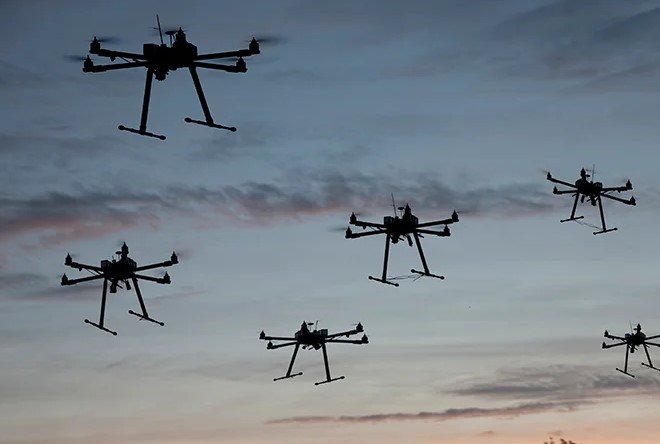Israeli startup Skyforce is transforming defense with AI software that turns manual systems into smart, autonomous operations. Founded in March 2025, the company focuses on edge computing to boost battlefield efficiency and cut human involvement.
Rise of Skyforce in Defense Innovation
Skyforce started in Tel Aviv amid a surge in Israeli tech after the October 7 events. The firm quickly gained attention for its AI agents that handle complex tasks without constant human input.
This year, defense tech funding in Israel hit record levels, with over $2 billion invested in startups. Skyforce fits into this trend by offering tools that work in tough conditions like jammed signals or remote areas.
The team includes experts from top firms like SpaceX. They build software that processes data right on the device, making decisions fast and reducing risks for operators.

How Skyforce Tech Works
At its core, Skyforce uses a mix of large language models and machine learning to control drones, vehicles, and other platforms. This setup allows groups of machines to work together without a central hub.
For example, in a defense scenario, unmanned ground vehicles can navigate enemy territory on their own. The AI brain handles navigation, threat detection, and coordination.
Key features include:
- Onboard processing for quick responses.
- Support for low-cost, replaceable units.
- Integration with existing hardware from various makers.
This approach cuts costs and scales up operations. Experts say it could change how militaries handle modern threats like drone swarms.
Dual-Use Applications Beyond War
Skyforce designs its tech for both military and civilian needs. In agriculture, farmers use it to automate crop monitoring with drones that spot issues early.
In healthcare, the software powers robots for supply delivery in hospitals. This versatility draws investors interested in broad market potential.
A recent report shows dual-use tech growing 15 percent in 2025. Skyforce plans to expand into sectors like logistics and emergency response.
| Sector | Application | Benefits |
|---|---|---|
| Defense | Autonomous drone fleets | Reduced operator risk, faster missions |
| Agriculture | Crop surveillance | Higher yields, less manual labor |
| Healthcare | Robot deliveries | Efficient supply chains, better patient care |
| Logistics | Warehouse automation | Cost savings, improved speed |
Challenges and Future Outlook
Building autonomous systems brings hurdles like ethical concerns and tech reliability. Critics worry about AI making life-or-death choices without oversight.
Skyforce addresses this with strict testing and human command options. The company follows global standards to ensure safe use.
Looking ahead, Skyforce aims to partner with major defense firms. With conflicts driving demand, analysts predict the AI defense market will reach $20 billion by 2030.
Recent events, such as increased drone use in global hotspots, highlight the need for such tech. Israel leads with over 200 startups in this space.
Global Impact and Competition
Skyforce competes with giants like those in the US and Europe. Yet its focus on edge AI gives it an advantage in real-world scenarios.
Investors poured $20 million into similar Israeli firms last quarter. This funding wave stems from proven tech in active zones.
The startup’s growth mirrors broader trends, like Europe’s push for AI in military edges.
Share your thoughts on AI in defense below. What excites or concerns you most? Spread the word if this sparks your interest.








